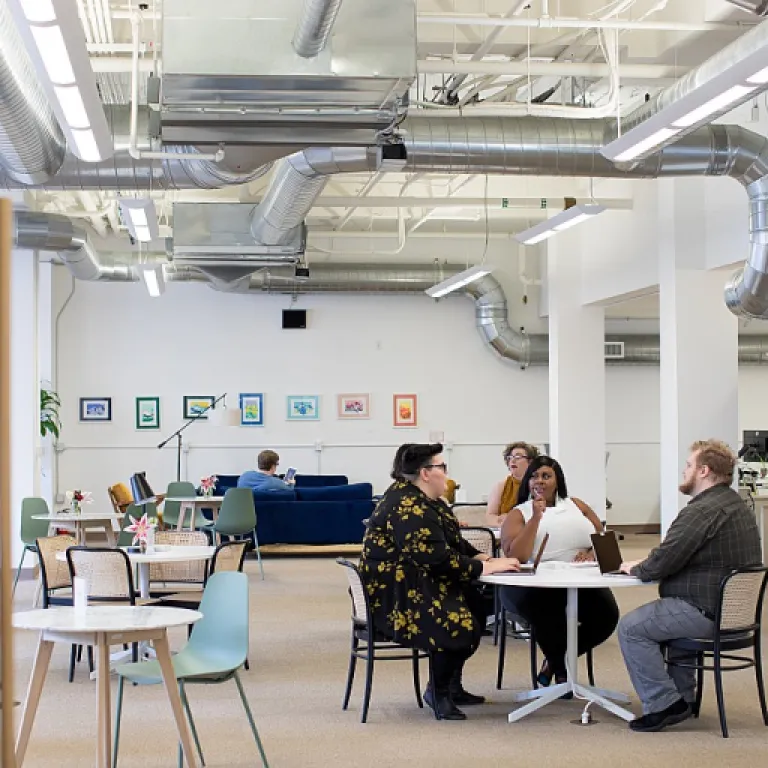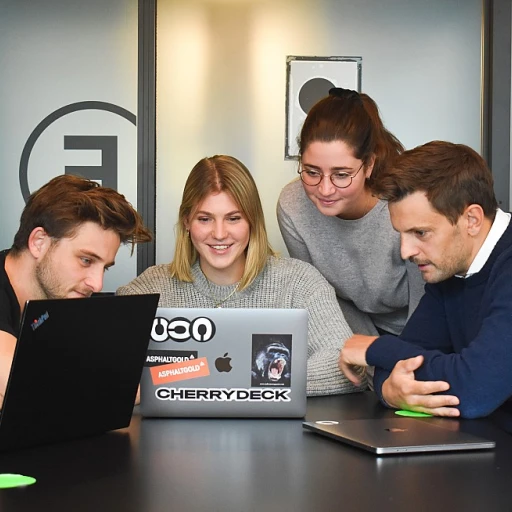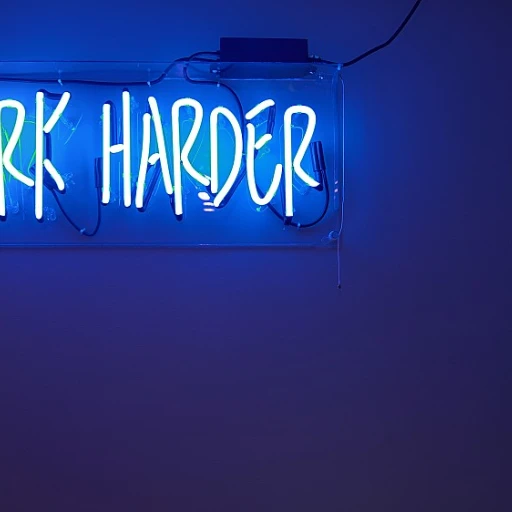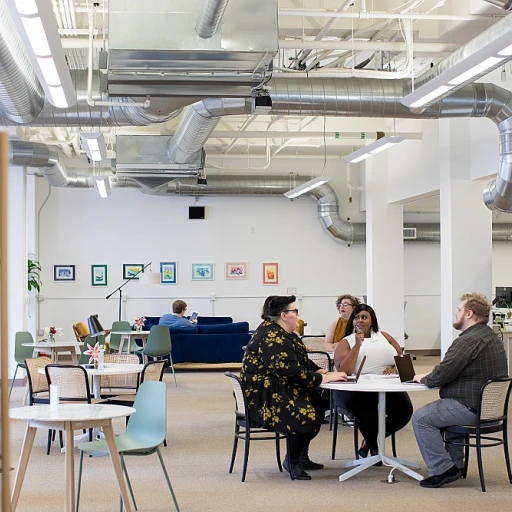
The Icelandic Experiment: A New Approach to Work
The Icelandic Experiment: Redefining the Traditional Workweek
Imagine a workweek that promises more flexibility, improved life balance, and heightened productivity. This isn't just an idealistic vision; it's the reality that Iceland has heralded with its adoption of a 4-day workweek. This Icelandic model calls for a reduction in working hours, without compromising the output and success of its workers. It challenges the conventional structure many countries adhere to, by pushing for reduced hours while maintaining or even improving productivity. The Icelandic approach is centered around the well-being of its people, emphasizing that workers with better work-life balance are often more productive. The idea is simple yet revolutionary: by reducing the traditional 5-day working week to a 4-day workweek, employees are granted more time for personal interests and mental health, while businesses benefit from more focused and efficient workers. This change is not merely an isolated phenomenon. With the rise of digital and remote work, there is a growing interest globally in how such a model can be adapted in diverse environments. As various countries evaluate the potential adoption of similar workweek reductions, it's crucial to review how Iceland's experiment can serve as a foundational study. The model has stirred interest around the world, with proponents advocating for a shift towards better work conditions that align with the true aspirations of today's workforce. Furthermore, a key factor to consider is user agreement among employers and employees alike. A shared understanding and commitment to this innovative concept is essential for reaping the full benefits. It could serve as a testament to the success of Iceland's model, potentially setting the stage for future predictions in global work culture transformation. This exploration of Iceland's new approach to work raises pertinent questions about its applicability in different settings. How well can it fit into the unique work culture of other countries? The dialogue continues, as the world's eyes are set on Iceland's bold move to redefine what a productive workweek truly means. For a deeper dive into how similar alternative work schedules like the 2-2-3 work schedule contribute to work-life balance, read more here.Generation Z's Unique Perspective on Work
Gen Z's Distinctive Outlook on Employment
Generation Z, often characterized by their digital fluency and adaptability, brings a unique perspective to the workplace. Unlike previous generations, Gen Z values flexibility and meaningful work experiences over traditional job security. This shift in priorities aligns well with the Icelandic model of a reduced workweek, which emphasizes work-life balance and mental health.
Having grown up in a digital era, Gen Z is accustomed to instant access to information and the ability to work remotely. This has shaped their expectations for a work environment that prioritizes efficiency and productivity over long working hours. The idea of a four-day workweek resonates with their desire for a better balance between professional and personal life.
Moreover, Gen Z is acutely aware of the importance of mental health and well-being. They are more likely to advocate for reduced working hours and flexible schedules that allow them to pursue personal interests and maintain a healthy lifestyle. This generation's true focus on life balance could drive significant changes in how work is structured in the coming years.
As companies consider adopting models similar to Iceland's, understanding Gen Z's expectations and values will be crucial. Employers who can successfully integrate these elements into their work culture may find themselves better positioned to attract and retain top talent from this emerging generation.
Potential Benefits of a Shorter Workweek for Gen Z
Exploring the Merits of a Four-Day Workweek for Young Professionals
The Icelandic model of implementing a four-day workweek presents several potential benefits for Generation Z, a demographic keenly invested in life balance. Understanding how a reduced number of working hours can contribute to improved mental health and productivity is crucial for this generation that values work-life integration. A major advantage of a shortened working week is the opportunity for workers to experience a better quality of life. By working fewer days without reducing total pay, individuals find more time for personal pursuits, hobbies, and strengthening social connections. This aligns well with the priorities of Generation Z, who have shown a keen interest in digital innovation and finding fulfilling, balanced lifestyles. Research from the Icelandic success story indicates improved well-being and satisfaction among employees who participated in the program. Productivity levels have generally remained stable or even improved, suggesting that the concept of working less can result in positive outcomes. For many Gen Z workers, who are seeking authenticity and flexibility in their careers, this reduced hours model resonates with their desire for meaningful work engagements rather than long hours spent in traditional office environments. The potential approval of such models in other countries could further encourage young people to demand similar changes in their working environments. As the world becomes increasingly interconnected, the success of Iceland’s four-day workweek holds promise for wider adoption in diverse work cultures. For more insights into how these trends affect various sectors, you may find valuable perspectives in understanding navigating work-life balance in market street careers, which delves into managing modern career expectations and realities.Challenges and Considerations for Employers
Navigating the Complexities of a Reduced Hours Model
In an era where productivity is increasingly prioritized, there are indeed challenges for employers seeking to implement a reduced workweek, akin to the Icelandic experiment. Iceland's success in trimming working hours to just four days a week while maintaining output levels indicates an evolution of the productivity model, but it does not come without its complexities. Employers are naturally concerned about maintaining, or even boosting, productivity when hours are cut. The worry is that less time at work could mean less output. However, the Icelandic model demonstrated that, with proper implementation, the opposite can be true—reduced hours can result in better mental health and efficiency among workers, leading to sustained productivity. Beyond productivity, the life balance aspect plays a significant role in the modern workweek. With a focus on mental health, employers have to consider the work life balance of their employees. Implementing a model where work is more intense but over fewer days requires agility in planning, to ensure that core responsibilities are still met. The key often lies in revisiting strategies such as digital solutions to enhance work efficiency and flexibility. Additionally, there's the factor of generational expectations. Generation Z, in particular, values a work life balance that's often elusive. For employers, it's about understanding these unique perspectives and ensuring that a four-day work week aligns with both company goals and worker satisfaction. Lastly, countries exploring this work week approach must tackle practical issues: regularity of tasks, preserving the integrity of roles, and compliance with employment regulations and privacy policies. The need for a well-defined user agreement and transparent communication with personnel becomes crucial. Overall, while the Icelandic success story sets a precedent, adopting a similar model elsewhere requires consideration of the varied demands of social and economic environments. Employers aiming to implement a four-day workweek must be prepared for thoughtful planning and adaptation to local contexts.Global Implications: Could Iceland's Model Work Elsewhere?
Global Influence: Assessing the Viability of Iceland's Approach Elsewhere
The Icelandic model of a 4-day workweek garnered much attention worldwide for its innovative approach to achieving a better work-life balance. But could this model find success beyond Iceland's borders? Various factors come into play, including cultural attitudes, economic considerations, and existing labor policies. Considering the global diversity in work culture, what might work for Iceland might not directly apply elsewhere. However, several countries are exploring reduced working hours in pursuit of productivity without sacrificing the well-being of workers. For instance, the concept of fewer work days with the same pay aims to foster better mental health and increase productivity, and has inspired trials in certain companies in countries like the UK and Spain. Here are a few key considerations when examining the potential applicability of Iceland's model worldwide:- Cultural Readiness: Different countries have varying cultural perceptions of work. Some cultures prioritize extended working hours as a sign of dedication, which could pose challenges in adopting a reduced day workweek.
- Economic Factors: Economic conditions influence the feasibility of adopting reduced hours. Countries with strong economies might support the transition easier without risking financial instability.
- Labor Laws and Policies: Existing labor legislation plays a critical role in shaping work hours. The icelandic success in reducing working hours was in part due to pre-existing strong labor rights and willing policy adaptation.
- Sector-specific Needs: Certain industries might find it challenging to adopt a 4-day workweek given demands for continuous service or production.
Future Predictions: How Gen Z Might Transform Work Culture
Generation Z: Pioneers of a New Work Culture
As we look towards the future, Generation Z is poised to redefine the work culture in ways that align with their values and expectations. This generation, having grown up in a digital age, values flexibility, mental health, and work-life balance more than any before. The Icelandic model of a reduced workweek, with its focus on fewer working hours and better life balance, resonates deeply with Gen Z's aspirations.
One of the key predictions for the future is that Gen Z will push for more widespread adoption of shorter workweeks. The success of Iceland's 4-day workweek has shown that reduced hours can lead to increased productivity and better mental health outcomes for workers. This aligns with Generation Z's desire for a work environment that prioritizes well-being over traditional measures of success.
Embracing Flexibility and Digital Innovation
Generation Z is also likely to champion the integration of digital tools to enhance productivity and flexibility. With their comfort in digital spaces, they are well-equipped to leverage technology to create more efficient working environments. This could mean more remote work options and flexible schedules that allow for a better balance between personal and professional life.
Challenges and Opportunities for Employers
Employers will need to adapt to these changes by embracing the values that Gen Z holds dear. This includes creating policies that support mental health, offering flexible working hours, and fostering a culture that values life outside of work. While this shift presents challenges, it also offers opportunities for companies to attract and retain top talent by aligning with the priorities of the new generation.
As more countries observe the Icelandic success, the global implications are clear: a shift towards a more balanced workweek could become a defining feature of the future workforce. The predictions for the coming years suggest that Generation Z will not only embrace these changes but will also drive them, leading to a more sustainable and fulfilling work culture for all.













